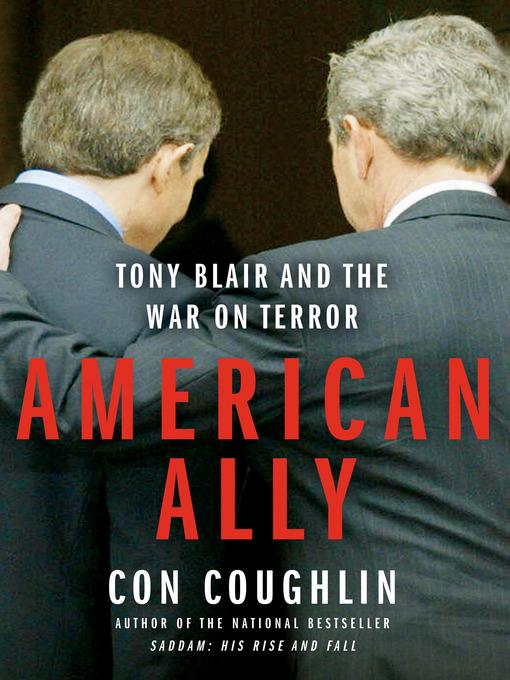
American Ally
Tony Blair and the War on Terror
کتاب های مرتبط
- اطلاعات
- نقد و بررسی
- دیدگاه کاربران
نقد و بررسی

January 30, 2006
In this robust portrait, Coughlin, a British journalist and Middle East specialist (Saddam: The Secret Life), documents prime minister Tony Blair's tenure, from the emergence of the New Labor party to the debacle in Iraq, showing how his proximity to Bill Clinton and George Bush has carried a high price. Despite their friendship, Blair suffered myriad indignities at Clinton's hands during the Balkan conflict and the Lewinsky scandal, and, more recently, critics have tagged Blair as "Bush's Poodle" for his alliance with the president. But the heart of this story is the search for weapons of mass destruction in Iraq and the tumult precipitated by September 11, culminating in the decision by Blair and Bush to confront Saddam Hussein. Particularly illuminating is the aversion to Blair by the neoconservatives surrounding the president, exemplified by Vice President Dick Cheney, a taciturn figure who hovers around the leaders during meetings, determined to counteract the Briton's influence. Blair emerges from these pages as a deeply moral, anguished wartime leader at the mercy of Washington's political and ideological currents.

January 9, 2006
In this robust portrait, Coughlin, a British journalist and Middle East specialist (Saddam: The Secret Life), documents prime minister Tony Blair's tenure, from the emergence of the New Labor party to the debacle in Iraq, showing how his proximity to Bill Clinton and George Bush has carried a high price. Despite their friendship, Blair suffered myriad indignities at Clinton's hands during the Balkan conflict and the Lewinsky scandal, and, more recently, critics have tagged Blair as "Bush's Poodle" for his alliance with the president. But the heart of this story is the search for weapons of mass destruction in Iraq and the tumult precipitated by September 11, culminating in the decision by Blair and Bush to confront Saddam Hussein. Particularly illuminating is the aversion to Blair by the neoconservatives surrounding the president, exemplified by Vice President Dick Cheney, a taciturn figure who hovers around the leaders during meetings, determined to counteract the Briton's influence. Blair emerges from these pages as a deeply moral, anguished wartime leader at the mercy of Washington's political and ideological currents.
Copyright 2006 Library Journal, LLC Used with permission.

February 1, 2006
A British journalist discusses Blair's pivotal role in two wars--against al Qaeda and against Saddam Hussein--as the tale of two marriages, between the PM and presidents Bill Clinton and George W. Bush. Initially attracted to Clinton's political vigor and "third way" centrism, Blair learned much from the president even as Clinton's refusal to commit ground troops in Kosovo strained their relationship. Although initially tentative about Bush, Blair's interventionist streak--cultivated by Kosovo and other Clinton--era challenges--ultimately brought Bush and Blair together and earned Britain the primary role in the "war on terror" that it plays today. Arguing against the view that Blair sided with Bush rather than Europe out of political weakness, Coughlin paints Blair as a tough man whose sense of moral principle bolstered Bush, not the other way around. Supported by many interviews and expansive research, this book is detailed, fluid, and fascinating. Ending prior to the 2005 terror attacks on the London Underground, however, it thus omits a key chapter in Blair's response to terrorism (an epilogue, unavailable at time of reviewing, may solve this problem).(Reprinted with permission of Booklist, copyright 2006, American Library Association.)

























دیدگاه کاربران